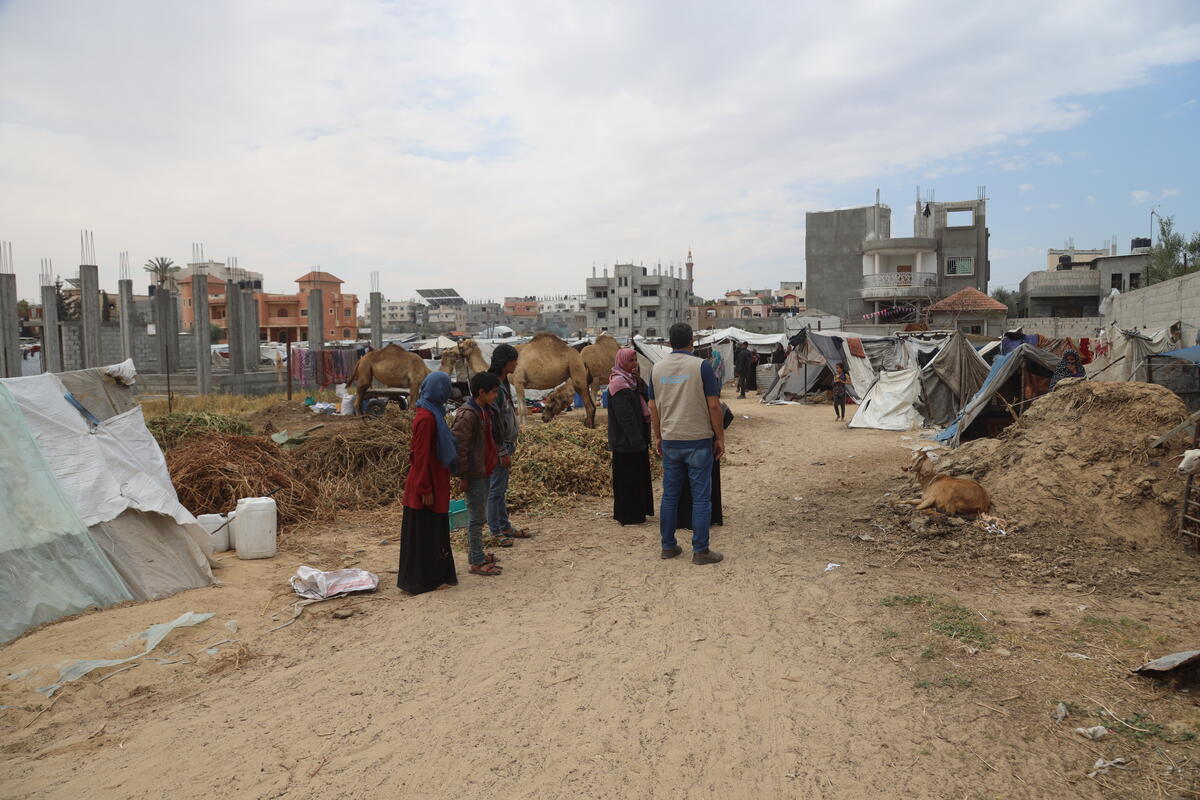
Report highlights 2 Egyptian projects among major clean energy ventures in N.Africa
A report by Energy Capital & Power highlighted two Egyptian projects – Suez Wind Power ...

Extreme weather events were the primary drivers in 18 countries where over 77 million people faced high levels of acute food insecurity, up from 12 countries with 57 million people in 2022, according to the latest Global Report on Food Crises (GRFC).
In 2023, the world experienced its hottest year on record and climate related shocks impacted populations, with episodes of severe floods, storms, droughts, wildfires, and pest and disease outbreaks.
The report said that nearly 282 million people in 59 countries and territories experienced high levels of acute hunger in 2023 – a worldwide increase of 24 million from the previous year. This rise was due to the report’s increased coverage of food crisis contexts as well as a sharp deterioration in food security, especially in the Gaza Strip and the Sudan.
For four consecutive years, the proportion of people facing acute food insecurity has remained persistently high at almost 22 percent of those assessed, significantly exceeding pre-COVID-19 levels.
Children and women are at the forefront of these hunger crises, with over 36 million children under 5 years of age acutely malnourished across 32 countries, the report shows. Acute malnutrition worsened in 2023, particularly among people displaced because of conflict and disasters.
Thirty-six countries have been consistently featured in the GRFC analyses since 2016, reflecting continuing years of acute hunger, and currently representing 80 percent of the world’s most hungry.
There has also been an increase of 1 million people facing Emergency (IPC/CH Phase 4) levels of acute food insecurity across 39 countries and territories, with the biggest increase in the Sudan.
In 2023, more than 705,000 people were at the Catastrophe (IPC/CH Phase 5) level of food insecurity and at risk of starvation – the highest number in the GRFC’s reporting history and up fourfold since 2016. The current situation in the Gaza Strip accounts for 80 percent of those facing imminent famine, along with South Sudan, Burkina Faso, Somalia and Mali.
According to the GRFC 2024 future outlook, around 1.1 million people in the Gaza Strip and 79 000 people in South Sudan are projected to be in Catastrophe (IPC/CH Phase 5) by July 2024, bringing the total amount of people projected in this phase to almost 1.3 million.
Intensifying conflict and insecurity, the impacts of economic shocks, and the effects of extreme weather events are continuing to drive acute food insecurity. These interlinked drivers are exacerbating food systems fragility, rural marginalization, poor governance, and inequality, and lead to massive displacement of populations globally. The protection situation of displaced population is additionally impacted by food insecurity.
Conflict remained the primary driver affecting 20 countries with nearly 135 million people in acute food insecurity – almost half of the global number. The Sudan faced the largest deterioration due to conflict, with 8.6 million more people facing high levels of acute food insecurity as compared with 2022.
Economic shocks primarily affected 21 countries where around 75 million people were facing high levels of acute food insecurity, due to their high dependency on imported food and agricultural inputs, persisting macroeconomic challenges, including currency depreciation, high prices and high debt levels.
Tackling persistent food crises requires urgent long-term national and international investment to transform food systems and boost agricultural and rural development alongside greater crisis preparedness and critical lifesaving assistance at scale, where people need it most. Peace and prevention must also become an integral part of the longer-term food systems transformation. Without this, people will continue to face a lifetime of hunger and the most vulnerable will starve.
The Global Network Against Food Crises urgently called for a transformative approach that integrates peace, prevention and development action alongside at-scale emergency efforts to break the cycle of acute hunger which remains at unacceptably high levels.
“This crisis demands an urgent response. Using the data in this report to transform food systems and address the underlying causes of food insecurity and malnutrition will be vital,” said António Guterres, UN Secretary-General.
A report by Energy Capital & Power highlighted two Egyptian projects – Suez Wind Power ...
The opening concert of the Annual Meeting 2025 in Davos-Klosters will address the pressing issues ...
Juhayna Food Industries proudly announced that its agricultural arm, El Enmaa for Agricultural Development, has ...


اترك تعليقا